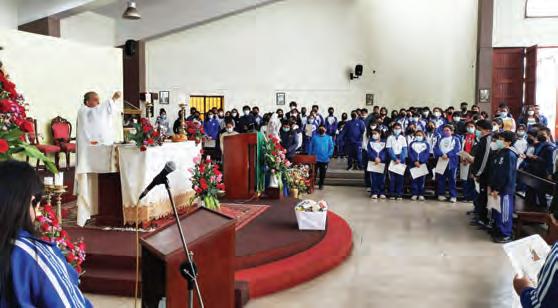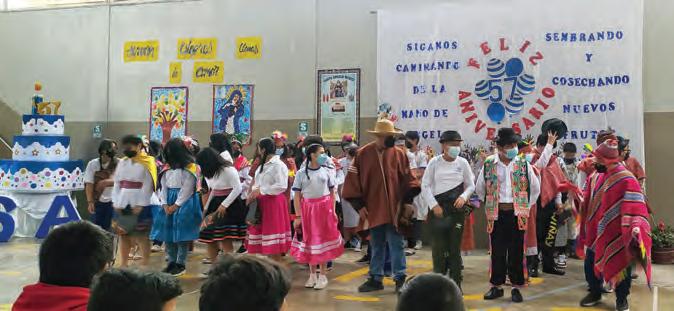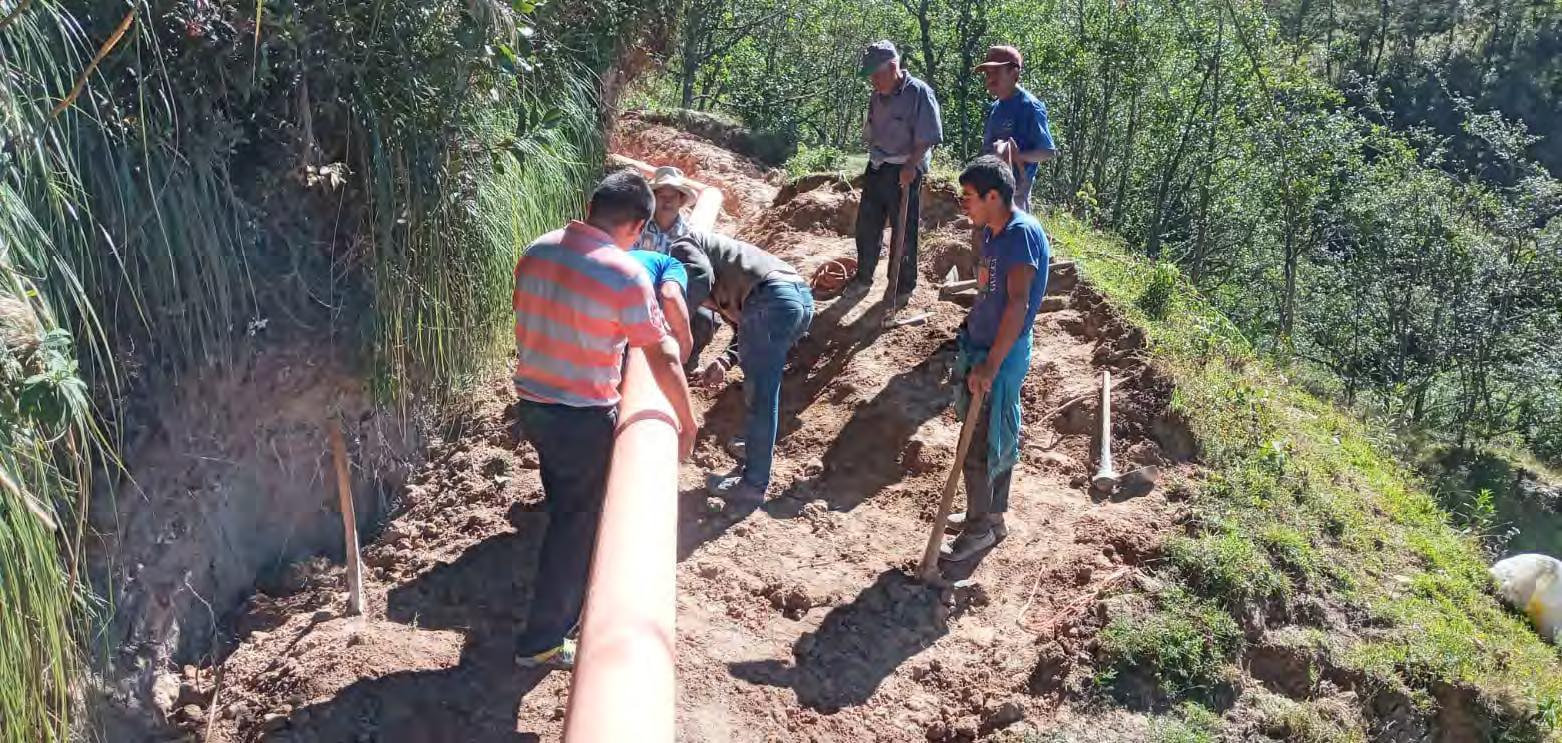
4 minute read
Peruvian Journal: Branching Out
from DOME - Winter 2022
by ursulineslou
Branching Out
Who would have thought that “branching out” for the Ursulines would have meant crossing borders: Kentucky borders, southern and western borders of the country. Every branching out meant learning new faces, new people, their customs, and traditions.
Advertisement
In the United States, maybe we were used to thinking of ourselves as a “melting pot.” Nothing was further from the truth. Our differences did
not melt together. Sometimes they didn’t even meet or mix.
In Louisville, as in any big city, one could find an Irish parish two blocks from the German parish or the Italian one. We could not even think of worshipping together. In some families, “mixed marriages” were considered marriages between different nationalities.
So, branching out to Peru and crossing cultures brought about a particularly unique challenge. Learning a new language was only the first step. More than that was a strong injection of values, learning what was important to others. And that happened in very small ways: in meetings, encounters, sharing a cup of coffee or tea. And it is a process that is still happening for me. It takes time and a tested openness. It is not an idyllic “now I’ve been there, now I know.”
Once you’ve been there and you know that you don’t know, you begin searching other contexts,
other opportunities, exploring other options, wanting to come up close, feeling, touching, sensing that there are cultural treasures all around that invite a daring immersion.
Such was our experience in going to San Miguel, Cajamarca; Huancayo; Junin and even Huamanga, Ayacucho. On a personal level, I can say I’ve come a long way. On a deeper level, I know in my heart the pains and challenges of interculturality.
Early in October, we celebrated the 57th anniversary of Santa Angela Merici School, and the entire year, but especially this quarter, was focused on coming to know the richness of the indigenous cultures in Peru. It was more than their food, their music, their dances that we encountered. The challenges of Laudato Si’ and Fratelli Tutti have invited us into their cosmovisions, trying to understand and integrate their cultural values into our western framework. All of us were
surprised with the richness of what we discovered in learning how their value system pre-dated—yet echoed—Laudato Si’ and Fratelli Tutti.
Recently, and in keeping with the Church’s Season of Creation, we participated with the Associates of another congregation, along with friends from the area, in a water ritual to save the Rimac River. (The Rimac River is probably beyond saving at this point.) The river carries pollution for miles, from the Andes to coastal populations and irrigated
School Mass at the Parish of Santa Angela Merici 57th anniversary celebration for Santa Angela Merici School


The village of Nitisuyo, just outside of San Miguel, Peru, in the Andes Mountains, had experienced heavy rains which washed out the system they used to provide water for their crops. Sister Sue Scharfenberger learned of their need for an updated system to include permanent pipes. Our leadership and Sister Sue coordinated the funding for the pipes from the Peru Fund (from our donors’ generosity), and the villagers came together to install the pipes as volunteer labor. Juan Jhony Ruiz Peña wrote, “Dear Sister Sue, The community is very grateful for this valuable support, and they were also very happy.” Thank you, donors to the Peru Fund, these are your gifts in action!
fields. But still, the river is a source of water for the city of Lima.
So, we gathered in prayer, asking forgiveness and recommitting ourselves to honor and respect water and the indigenous communities from where it flows. Some of our students and Associates joined in the ritual. A small token, some would say. Yes! But a necessary reminder of our commitment to care for the earth, our common home.
Similarly, in San Miguel in Cajamarca, the support we are able to give to some of the poorest of villages to renew their irrigation systems is a testimony to the Ursulines and our donors’ commitment to give thanks for the gifts of creation and to own our responsibility for caring for the earth and its life-giving sources.
Our branching out has taught us so much. And what we learn, we try to share and cultivate with the circles of children, youth, men, and women who are a part of our lives and part of the intercultural circles that are life-giving and life-sustaining.
As with many of you, the pandemic has created new connections reaching out beyond borders to cities and communities around the world. The challenges of virtual meetings have been met with the blessings of making our worlds smaller, because we can more easily connect with communities previously distant to us.
May the act of reaching out always remind us of how blessed we are with the many communities that are a part of our lives to challenge our perception and understanding of what is truly important in life.

